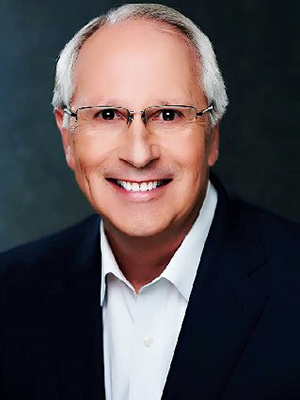You can control both where your assets are invested and who you choose to take advice from.
My favorite holiday is Thanksgiving. It is a reminder that regardless of our circumstances, there are always things to be thankful for. One of the most profound messages that I heard two years ago was on the topic of happiness. The speaker had done years of research on the topic, and one of the consistent mainstays of happiness in the people he researched is that they had an attitude thankfulness.
There are people whose wallets (or bank accounts) are filled with wealth, but they are miserable; they will gladly tell you about everything that is wrong in our world. On the other hand, there are people I met on mission trips to Mexico and Nicaragua living in cardboard huts with smiles on their faces, thankful for any act of kindness shown to them.
This season of the year is filled with traditions. Some traditions are great and create wonderful memories, while other traditions create chaos and dread. In the end, we are responsible for the lifestyle we support. We need to keep what is good and replace what is negative.
Our country has become more divided than ever. Do we add to that division or do we, on an individual basis, choose to add value to our life and to those with whom we communicate? 2020 has been a year that most people are waiting to end, but why not choose to learn from the disruption we have experienced this year instead of adding it to our pool of negative memories.
2020 has been a year in which many families have grown closer. It has made many of us recognize the things we took for granted before that are really important to us. We have been reminded of the value of freedom in small ways. Being able to live without masks and go where we wanted with no restrictions is a wonderful memory.
What is in the wallet of your brain is more important than the wallet that contains your cash and credit cards. Appreciate the small traditions that bring families together and eliminate those that separate us.
Now to finances. At the time of my writing, the elections are coming, and by the time you read this, the elections will hopefully be behind us. Regardless of the outcome, our finances will be impacted by forces beyond our control. But the theme that I discussed above is the same — you must take responsibility for the things you can control.
You can control both where your assets are invested and who you choose to take advice from. Some assets are guaranteed and some achieve higher returns. You must understand the time frame and risks involved to make the appropriate choices. The current outlook is for continued low returns with fixed income assets, and equities currently provide the opportunity for higher returns, but your age, time frame, risk tolerance, and potential tax impact all must be considered for the appropriate allocation.
Be thankful that there are many people with knowledge and experience who can provide guidance. It is your responsibility to find persons whom you can trust and who have your best interest at heart. The most valuable thing in your wallet of relationships is family, friends, and advisors who care about you. Choose to be thankful and let 2020 be a year that reminds us that we can experience difficult challenges with an attitude of thankfulness. We are not alone in this journey.
























